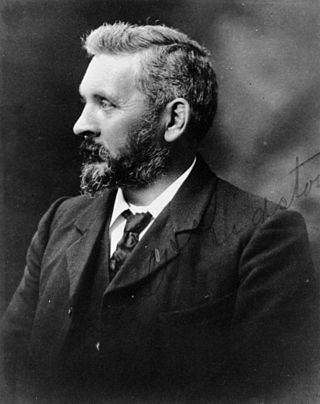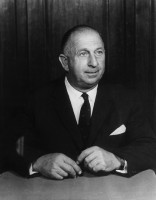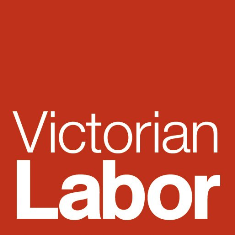Politics of the Australian state of Victoria takes place in the context of a constitutional monarchy with a bicameral parliamentary system, and like other Australian states, Victoria is part of the federation known as the Commonwealth of Australia.

Henry Daglish was an Australian politician who was the sixth premier of Western Australia and the first from the Labor Party, serving from 10 August 1904 to 25 August 1905. Daglish was born in Ballarat, Victoria, and studied at the University of Melbourne. In 1882, he worked as a mechanical engineer but soon switched to working in the Victorian public service. He first stood for election in 1896 but failed to win the Victorian Legislative Assembly seat of Melbourne South. He then moved to Subiaco, Western Australia, where he found work as a chief clerk in the Western Australian Police Department. In 1900, Daglish was elected to the Subiaco Municipal Council and in April the following year, he was elected to the Western Australian Legislative Assembly as the member for the newly created seat of Subiaco, becoming one of six Labor members in the Western Australian Legislative Assembly. The party elected him as its whip, and he resigned from the Subiaco council on 1 May 1901. On 1 December 1902, Daglish was sworn in as mayor of Subiaco, having been elected the previous month.

The Victorian Legislative Council is the upper house of the bicameral Parliament of Victoria, Australia, the lower house being the Legislative Assembly. Both houses sit at Parliament House in Spring Street, Melbourne. The Legislative Council serves as a house of review, in a similar fashion to its federal counterpart, the Australian Senate. Although it is possible for legislation to be first introduced in the Council, most bills receive their first hearing in the Legislative Assembly.

William Kidston was an Australian bookseller, politician and Premier of Queensland, from January 1906 to November 1907 and again from February 1908 to February 1911.

Elections were held in the state of Western Australia on 3 October 1911 to elect 50 members to the Western Australian Legislative Assembly. The Labor Party, led by Opposition Leader John Scaddan, defeated the conservative Ministerialist government led by Premier Frank Wilson. In doing so, Scaddan achieved Labor's first absolute majority on the floor of the Assembly and, with 68% of the seats, set a record for Labor's biggest majority in Western Australia. The record would stand for nearly 106 years until Labor won 69% of seats at the 2017 election. The result came as something of a surprise to many commentators and particularly to the Ministerialists, as they went to an election for the first time as a single grouping backed by John Forrest's Western Australian Liberal League, under a new system of compulsory preferential voting and new electoral boundaries both of which had been passed by Parliament earlier in the year despite ardent Labor opposition.
This is a list of members of the Western Australian Legislative Assembly between the 1904 elections and the 1905 elections, together known as the Fifth Parliament.

Elections were held in the Australian state of Victoria on 15 July 1961 to elect the 66 members of the state's Legislative Assembly and 17 members of the 34-member Legislative Council. MLAs were elected for three year terms and MLCs were elected for six year terms. All were elected in single-member districts or provinces using preferential voting.
Ministerialists and Oppositionists were political groupings in the political systems of several Australian colonies and states, used to describe supporters or opponents of the government of the day. The terminology had earlier been used in the same way in the United Kingdom.

David Bowman was a Labor politician in the Legislative Assembly of Queensland and Queensland Leader of the Opposition from 1908 to 1912.

Elections were held in the Australian state of Queensland on 27 August 1904 to elect the members of the state's Legislative Assembly. The Ministerial Party maintained government with the continued support of the Labour Party.

The 1917 Victorian state election was held in the Australian state of Victoria on Thursday 15 November 1917 for the state's Legislative Assembly. 51 of the 65 Legislative Assembly seats were contested.

Sydney Stubbs CMG was an Australian politician who served twice in the Parliament of Western Australia: in the Legislative Council from 1908 to 1911, and then in the Legislative Assembly from 1911 to 1947. He was Speaker of the Legislative Assembly from 1930 to 1933, and had been Mayor of Claremont and then Mayor of Perth prior to entering parliament.

The Victorian Labor Party, officially known as the Australian Labor Party and commonly referred to simply as Victorian Labor, is the Victorian state branch of the Australian Labor Party (ALP). The party forms the incumbent government in the state of Victoria and is led by Jacinta Allan, who has served concurrently as Premier of Victoria since 2023.

Sir Norbert Michael Keenan QC was an Australian lawyer and politician who was a member of the Legislative Assembly of Western Australia from 1905 to 1911 and again from 1930 to 1950. He was the leader of the Nationalist Party from 1933 to 1938, during the time when it was the junior partner in the coalition with the Country Party. Keenan had earlier served as a minister in the government of Newton Moore and the second government of Sir James Mitchell.

The 1908 Victorian state election was held in the Australian state of Victoria on 29 December 1908 to elect 40 of the 65 members of the state's Legislative Assembly. The other 25 seats were uncontested.

The 1904 Victorian state election was held in the Australian state of Victoria on 1 June 1904 to elect 67 members to the state's Legislative Assembly.

The 1902 Victorian state election was held in the Australian state of Victoria on 1 October 1902, to elect 70 of the 95 members of the Victorian Legislative Assembly. The other 25 seats were uncontested.

The 2026 Victorian state election is expected to be held on 28 November 2026 to elect the 61st Parliament of Victoria. All 88 seats in the Legislative Assembly and all 40 seats in the Legislative Council will be up for election, presuming there are no new electorates added in a redistribution.
The Liberal Party, often known simply as the Liberals, was the name used by a number of political groupings and parties in the Victorian Parliament from the late 19th century until around 1917.

The 1864 Victorian colonial election was held from 5 October to 3 November 1864 to elect the 4th Parliament of Victoria. All 78 seats in 49 electorates in the Legislative Assembly were up for election, though sixteen seats were uncontested.

















